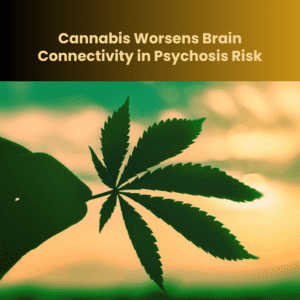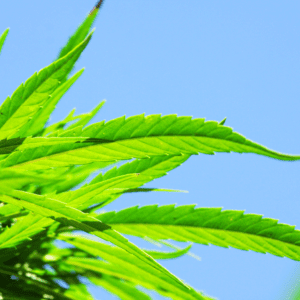Steady Sales for Premium Cannabis Brands Despite Economic Woes

In Volatile Economy, Luxury Cannabis Brands Thrive Despite Economic Uncertainty
In a fluctuating economy, luxury goods are often the first to take a hit, as consumers tighten their wallets. Yet, in the cannabis industry, premium brands are defying expectations. Despite economic uncertainty, high-end marijuana products continue to attract discerning customers seeking top-tier experiences, highlighting a surprising trend in the growing cannabis market.
Premium Cannabis Brands Weather the Economic Storm
According to Dana Mason, vice president of brand marketing at Cresco Labs, a Chicago-based producer of high-end cannabis brands such as Mindy’s Edibles and FloraCal, luxury cannabis products cater to a specific segment of consumers willing to pay for premium quality.
“Some consumers want the best in any category—cannabis or not,” Mason explained. “There are people who appreciate premium products and are willing to pay more. Luxury brands are targeting a different consumer group than those looking for that everyday value.”
The key to luxury cannabis lies in its exclusivity, characterized by high price points and limited availability. This concept is essential to maintaining a brand’s premium status, noted Nick Ortega, co-founder and CEO of Claybourne Co., a Southern California-based cannabis flower and pre-rolls brand.
“You can’t have a premium product at a value price, otherwise, that product isn’t going to be premium for long,” Ortega said.
Marijuana Flower: Navigating the Premium Market
Claybourne’s Ortega pointed out that premium marijuana flower brands face a unique challenge in today’s data-driven market. Many cannabis companies offer retailers high-end flower and pre-rolls at discounted or promotional rates, which can artificially inflate sales figures in industry data reports.
“That’s the biggest challenge we face as a brand,” Ortega shared. “How much are the Joneses giving away for free, and how much do you want to keep up with the Joneses? When you see crazy market share increases, there’s typically a hidden reason.”
Despite this challenge, Claybourne strives to maintain its position as one of the most expensive cannabis brands in California. Ortega emphasized the importance of knowing the target consumer and tailoring product availability accordingly. For example, Claybourne’s high-end Gold Cuts flower isn’t sold in stores where customers are unlikely to pay premium prices. However, the brand’s Frosty Flyers pre-rolls, while still expensive, are offered in stores where pre-rolls at similar price points are sold.
“You can’t be targeting a budget consumer with a Cadillac,” Ortega said.
For retailers, premium products like Claybourne’s offer a lucrative opportunity, as they generate higher revenue than lower-priced goods. “If they’re smart, retailers want to sell high-priced goods,” Ortega noted. “The race to the bottom also affects the retailers.”
Pre-Rolls: Craftsmanship Meets Consumer Demand
In recent years, pre-roll sales have skyrocketed, with revenue jumping 271% from $71.4 million in January 2020 to $265 million in July 2024, according to cannabis industry data firm Headset. One of the leaders in this category is Made in Xiaolin, a Colorado-based infused pre-rolls brand.
Co-founder and CEO Chris Louie explained that getting the company off the ground was challenging but that the market opened up in 2020 when cannabis was deemed essential during the COVID-19 pandemic. Made in Xiaolin is known for its unique, artistic pre-roll designs, such as The Knife, a two-gram flower pre-roll with a burn time of 20-30 minutes, and the White Rose, which contains 0.4 grams of flower and burns for about 10 minutes.
“It’s a very subculture type of thing,” Louie said. “We love to be creative with our products and really showcase craftsmanship.”
Made in Xiaolin’s products are gaining traction in the expanding New York marijuana market, where consumers are increasingly seeking novelty items. “It’s about more than the product: It’s about the whole experience from buying it to unboxing it to sharing it and experiencing it and lighting it up,” Louie added.
Edibles: Steady Sales in a Competitive Market
Cresco Labs’ Mindy’s Edibles, crafted by James Beard award-winning chef Mindy Segal, has maintained strong sales even as some cannabis categories have been affected by price compression in markets like Illinois and Michigan.
“Cannabis really proved itself during COVID to be a strong and consistent consumer category,” said Cresco’s Mason. “We’ve seen that coming out of the pandemic as well.”
Mason compared cannabis consumers to wine connoisseurs, noting that both value luxury and variety. While there will always be customers looking for budget options, such as “boxed wine,” there are also consumers willing to invest in premium products.
Wana Brands President Joe Hodas shared a similar sentiment. While Wana avoids the term “luxury” and prefers to describe its products as “premium,” the company also adapts its market strategy based on performance. Wana pulled out of California and Oregon in recent years, as both markets were too price-compressed to compete effectively. However, Wana’s revenue is rising in Michigan, even though the company has to sell more units due to market-wide price compression.
Beverages: THC-Infused Drinks on the Rise
THC-infused beverage sales have steadily increased over the past five years. In January 2020, retailers sold $6.1 million worth of these drinks, a figure that had climbed to $23.2 million by July 2024, according to Headset. However, prices have dropped, with beverages selling for 18 cents per milligram in 2020 and 10 cents per milligram by mid-2024.
Jake Bullock and Luke Anderson, co-founders of THC-infused beverage company Cann, launched their product in 2019 as an alcohol alternative. “Our idea was this is an alcohol alternative,” Bullock said. “We really believe this should be sold alongside alcohol.”
The company has expanded its distribution beyond traditional cannabis dispensaries. Minnesota became the first state to allow the sale of hemp-derived THC beverages in liquor stores in 2022, followed by other states.
Cann has seen rapid growth in these new markets, and Bullock emphasized the benefits of diversifying sales channels. “That tells us that dispensaries are an imperfect way to gain access to these low-potency drinks,” he said.
A Growing Future for Premium Cannabis Products
In a volatile economy, the luxury cannabis sector is proving that it has staying power. Whether through premium flower, pre-rolls, edibles, or beverages, consumers are continuing to seek out high-end experiences, even during economic uncertainty. As brands adapt to changing markets and consumers gravitate toward more exclusive, high-quality products, the cannabis industry is expected to keep evolving with new innovations and premium offerings.











